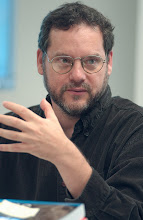The Dream Reborn?
 This April 4th is the 40th anniversary of the assassination of Martin Luther King. I was just 12 when it happened, but I remember vividly the heartbreaking day when King was shot down in Memphis while supporting striking garbage workers standing up for their dignity and labor rights.
This April 4th is the 40th anniversary of the assassination of Martin Luther King. I was just 12 when it happened, but I remember vividly the heartbreaking day when King was shot down in Memphis while supporting striking garbage workers standing up for their dignity and labor rights. I’m sure many TV news programs will mention the anniversary of King's death on the 4th, and some will even play a short sound bite from King's famous 1963 “I Have A Dream” speech. A few stations might even play a clip from the last night of his life, when King gave his speech about going up to the mountain top and seeing the Promised Land of an America finally and firmly dedicated to peace, economic justice, racial equality, and a real grassroots democracy.
Personally, I’m grateful for any attention paid to King and the meaning of his activism for us today. One of my favorite stories of people honoring King is from about twenty years ago. Back in the 1980s, a local coalition of churches, civic groups, and small business leaders organized a community organizing campaign in Seattle to get the city council to rename a street after King. At the time, the street they chose to rename, which was called the Empire Way, ran right through one of the city’s predominantly black neighborhoods.
After a few months of grassroots lobbying, they won their campaign and got the city council to agree to the name change. After the council’s vote, the organizers invited community members to a large Baptist church for a victory celebration. That night Vincent Harding, a long-time associate of King’s, spoke to the gathered community. He urged everyone there to fully embrace the deeper symbolism of what they had just accomplished. As he said to them, “You have now changed the road you travel from the Empire Way to Martin’s way.”
Isn’t that exactly the challenge we still face today—changing the road we travel from the Empire Way to Martin’s Way? As more and more people are coming to realize, we need to get active again in what King called “the long and bitter—but beautiful--struggle” to move away from an empire of lies, militarism, torture, illegal wars of aggression, uncontrolled corporate greed and power, growing inequality, and the trampling of the Bill of Rights. We need to get active in the effort to create the “Beloved Community” that King so often invoked as his deepest, long-range vision.
There are many signs that this shift is beginning to happen. One important indicator of renewed movement is the innovative new coalition of religious, labor, environmental, student, and civil rights groups called Green For All. The coalition is hosting a national conference called “The Dream Reborn” in Memphis on the weekend of April 4-6. The conference is a very direct example of expanding King’s vision of the Beloved Community to include the interests of “We the People” and the planet. As Green For All’s conference invitation says:
It's official: in Memphis from April 4-6, Green For All is bringing together the practitioners, activists, and communities at the center of the emerging green-collar economy. Join us on the 40th Anniversary of Dr. Martin Luther King, Jr.'s assassination. This historic event will celebrate his extraordinary life and present positive solutions from today's generation of visionary leaders. A bullet killed the dreamer, but not the dream. Together, we will create ecological solutions to heal the earth while bringing jobs, justice, wealth and health to all our communities.
Green For All’s mission statement goes on to say:
Green For All has a simple but ambitious mission: to help build a green economy strong enough to lift people out of poverty. By advocating for a national commitment to job training, employment and entrepreneurial opportunities in the emerging green economy--especially for people from disadvantaged communities--we fight both poverty and pollution at the same time. We are committed to securing one billion dollars by 2012 to create “green pathways out of poverty” for people in the United States, by greatly expanding federal government and private sector commitments to “green-collar” jobs.
Now, isn't that a great way to honor King’s memory? I would go to Memphis, but I’m hosting an activist training session that weekend on Diversity and Coalition-Building right here in Keene, New Hampshire. We can’t all go to big national conferences, but we can all contribute to the movement for a Beloved Community wherever we live.
This short essay may be forwarded on to your friends, families, and colleagues, as well as to any listserves or blogs you think might be interested.

